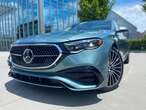Fresh off a stint as the internet’s most mendacious purveyor of vile conspiracy theories in hurricane-ravaged North Carolina, Elon Musk has moved onto a new and exciting phase of his career in reactionary politics: stumping for his preferred presidential candidate, Republican nominee Donald Trump. Musk, who has already poured tens of millions of dollars into a pro-Trump political action committee he formed earlier this year, spent much of October on the campaign trail and even appeared onstage with Trump at rallies in Pennsylvania, often under the profoundly mistaken impression that he photographs well mid-euphoric jump.
As is often the case when wealthy egomaniacs assume they are experts in fields about which they know nothing, Musk’s infusions of cash may be misdirected. His canvassers are reportedly struggling to hit voter outreach targets, and might be lying about it in an admirable effort to grift the grifter. He has parroted debunked falsehoods about election fraud, at least one of which resulted in a nine-figure defamation settlement the last time a right-wing propagandist asserted it. His pledge to give away $1 million per day to registered voters in swing states—a bootleg Publishers Clearing House sweepstakes for the MAGA-curious—has been condemned as “clearly illegal” by election law experts. The Department of Justice sent Musk’s PAC a warning letter but did not specify any immediate legal consequences, thus upholding this country’s long tradition of allowing the rich to violate with impunity whatever laws they don’t feel like following.
There are several intertwined hypotheses for explaining Musk’s support of Trump, all of which are probably accurate to some extent. Musk shares Trump’s passions for xenophobia, sexism, transphobia, and grievance politics. Musk mainlines right-wing media, whose luminaries often frame Trump as the only politician capable of saving America from completing its transformation into the post-apocalyptic nightmare he’s been warning about. Like many of the Silicon Valley ghouls backing a former president who spent his last days in office attempting to foment a coup, Musk envisions himself as a Great Man, and believes that as a general matter, Great Men are better qualified to do just about anything than just about anyone else.
A second Trump administration might also afford Musk a tantalizing opportunity to sit at the intersection of money and power: Earlier this year, the candidate pledged to tap Musk to lead his administration’s “government efficiency commission,” a classic conservative euphemism for a massive deregulatory agenda that would outsource basic functions of government to the private sector. Since Musk’s companies already hold an estimated $3 billion annually in government contracts, such a promotion would entrust him with the troubling authority to gut the agencies tasked with enforcing the law whenever one of his companies breaks it.
In recent months, however, Musk’s carefully-curated image as a visionary businessman genius has blurred, to put it politely. His net worth is still around a quarter-trillion dollars. But Tesla’s growth has slowed, and other automakers are closing the gap in the EV market that Tesla long dominated. Although the company’s third-quarter earnings report exceeded expectations overall, automotive revenue—the car-selling side of the business—has been basically flat since late 2022. The value of X, previously known as Twitter, has plummeted since Musk bought the company, which he borrowed billions to do in the first place; meanwhile, authorities abroad are hammering the platform with fines and sanctions for its refusal to stop the spread of misinformation. Neuralink, Musk’s brain implant startup, and Cybercab, his much-hyped driverless taxi project, are both years behind schedule and probably years away from going to market.
The Boring Company was supposed to revolutionize transit and forevermore end vexing traffic jams in heavily-populated cities. To date, its most significant accomplishment is tunneling beneath the Las Vegas Convention Center to build a “road” for “cars,” which transportation historians will note is not exactly a groundbreaking technology.
SpaceX is probably Musk’s most promising venture, in large part because the U.S. government has effectively outsourced its space program to the company. Starlink, a SpaceX subsidiary that provides satellite internet service, also stands to make a ton of money if the federal government were to make the company’s products a major part of its ambitious broadband infrastructure expansion plans. But under the Biden administration, those federal dollars have not been as forthcoming as Musk would like, and the nature of SpaceX’s business means that the company will continue to require massive government investment to have any hope of realizing long-term success, let alone fulfilling Musk’s probably-delusional dream of colonizing Mars.
Already, SpaceX’s relationships with regulators are souring. In the aftermath of Hurricane Helene, for example, Musk publicly blamed the deaths of victims in North Carolina on the Federal Communications Commission’s decision to reject Starlink’s application for hundreds of millions of dollars in subsidies last year. In September, he attacked the Federal Aviation Administration for having the temerity to propose to fine SpaceX for a handful of permitting violations. A few days later, after a SpaceX Falcon 9 rocket malfunctioned during its return to earth, the FAA grounded the company’s flagship rocket for the third time in three months.
In other words, for all the clout that Musk has assembled as the world’s wealthiest person, he is also running out of the most important currency in Silicon Valley: new ideas that would keep him relevant and make him even wealthier. It isn’t just that a President Trump would run a corporate-friendly administration and hand Musk control of the regulators who regulate him; it’s that Musk kind of needs a corporate-friendly administration and control of the regulators who regulate him, to maximize his chances of keeping this house of cards upright a little longer. Given Musk’s and Tesla’s substantial investments in Dogecoin and Bitcoin, respectively, the Trump campaign’s promises to unleash the cryptocurrency industry would boost his net worth no matter how unspectacular his next big product reveal may be.
What I am saying here is that if you were an addled rich guy whose highest-profile brands were a struggling car manufacturer, a failing social media platform, and a space exploration company that requires a continuous stream of billions of dollars in public resources in order exist, you, too, would be doing whatever you could to elect the other addled rich guy who is promising to lighten your burden.
The irony here, of course, is that the U.S. government is sort of pot-committed to Musk already. If Vice President Kamala Harris wins the election next month, her administration would rely as heavily on SpaceX to put astronauts into orbit as President Joe Biden’s does now, and as President Donald Trump’s did before and would again. The worst thing she’d probably do to Musk is keep him a bit more at arm’s length than Trump would. (Personally, I find it alarming that the government maintains such a cozy relationship with an erratic creep who openly questions why no one is trying to assassinate the presidential candidate he does not like. An issue for another day, perhaps!)
Like most people who have poisoned their brains with right-wing politics, however, Musk seems incapable of exercising common sense in this context. At this point, it’s probably impossible for him to square the relative security of his position with the specter of a far-left Harris administration that, in Musk’s hyperactive imagination, will end democracy as we know it and imprison him on day one. For a person whose cultural-icon, captain-of-industry status is as fragile as it’s been in decades—and who cares as much about being famous as he cares about remaining rich—even the possibility of being marginalized likely feels like an existential threat. There is no check he will not write or lie he will not repeat or law he will not break in order to neutralize it.









No comments